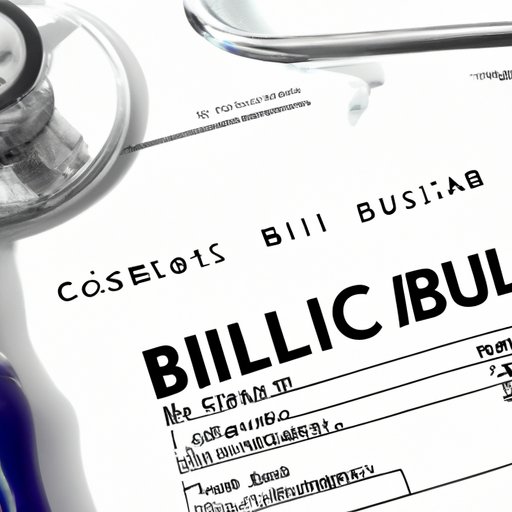
I. Introduction
Unpaid medical bills are a growing problem in the United States, affecting millions of individuals and families each year. Healthcare costs continue to rise, and with them, so does the burden of unpaid medical bills. Managing healthcare costs is crucial for maintaining financial stability and preventing long-term consequences.
II. The Financial Consequences of Ignoring Medical Bills
Medical treatment can be expensive, and the costs associated with it can quickly accumulate. When medical bills go unpaid, they can have significant financial consequences. Interest charges, late fees, and collection costs can increase the overall amount owed, making it even more challenging to pay off the debt.
Ignoring medical bills can also have long-term financial impacts. Unpaid bills can stay on a credit report for up to seven years, negatively affecting credit scores and making it more challenging to obtain credit in the future. Additionally, unpaid medical bills can also lead to legal action, which can result in wage garnishment or property liens.
III. The Impact of Unpaid Medical Bills on Your Credit Score
Unpaid medical bills can have a significant impact on credit scores. Medical debt makes up a large percentage of the debt that goes to collections each year, and it is one of the leading reasons for bankruptcies in the United States.
However, not all medical debt is reported on credit reports. In 2017, new credit reporting rules were implemented that require a 180-day waiting period before unpaid medical bills can be reported to credit bureaus. This grace period gives individuals and healthcare providers time to resolve any billing disputes or insurance reimbursement issues.
To prevent damage to your credit score, it is important to communicate with healthcare providers and insurance companies, and to take prompt action to resolve any billing issues before they go to collections.
IV. Legal Action: What Happens When You Don’t Pay Medical Bills
When medical bills go unpaid, healthcare providers and collection agencies may take legal action to recover the debt. The legal process for unpaid medical bills varies by state, but typically involves sending a demand letter and filing a lawsuit.
If a lawsuit is filed, it is essential to respond in a timely and responsible manner. Ignoring legal action can result in a default judgment, which can lead to wage garnishment or property liens. Working with a debt counselor or attorney can also be helpful in navigating the legal process and finding a solution to resolve the debt.
V. Navigating the Collection Process for Unpaid Medical Bills
Collection agencies are often involved in the process of recovering unpaid medical bills. Understanding debt collection practices and regulations can help individuals navigate the collection process and negotiate with healthcare providers and collection agencies.
It is also important to know your rights as a consumer. The Fair Debt Collection Practices Act (FDCPA) provides protections for individuals who are dealing with debt collectors. Consumers can request that debt collectors stop contacting them, request proof of the debt, and dispute the debt if they believe it is inaccurate.
VI. The Emotional Toll of Unpaid Medical Bills
Unpaid medical bills can have a significant emotional toll on individuals and families. The stress and anxiety associated with medical debt can affect mental and emotional health, leading to depression, anxiety, and other related issues.
Coping with the stress of medical debt can be challenging, but there are resources available. Seeking support from family, friends, and healthcare providers can help to alleviate some of the emotional burden. Additionally, working with a debt counselor or mental healthcare provider can be helpful in finding solutions to manage medical debt and reduce stress levels.
VII. Preventing Unpaid Medical Bills: Tips for Managing Healthcare Costs
Preventing unpaid medical bills starts with managing healthcare costs. There are several strategies that individuals can use to reduce healthcare costs and prevent medical debt:
- Understand your insurance coverage and benefits, and communicate with healthcare providers about costs.
- Shop around for healthcare providers and services to find the most affordable options.
- Take advantage of free or low-cost preventive services, such as screenings and immunizations.
- Use healthcare savings accounts, such as flexible spending accounts (FSAs) and health savings accounts (HSAs), to pay for medical expenses tax-free.
For individuals who are struggling with medical debt, there are also resources available for financial assistance. Nonprofit organizations, such as the Patient Advocate Foundation and the Financial Assistance Fund, provide grants and assistance to individuals who are struggling with medical bills.
VIII. Conclusion
Unpaid medical bills can have significant financial, legal, and emotional consequences. However, with proactive management of healthcare costs and prompt attention to unpaid bills, individuals can prevent these consequences and find solutions to manage healthcare costs. Seeking support from healthcare providers, debt counselors, and family and friends can also provide valuable resources and assistance.




